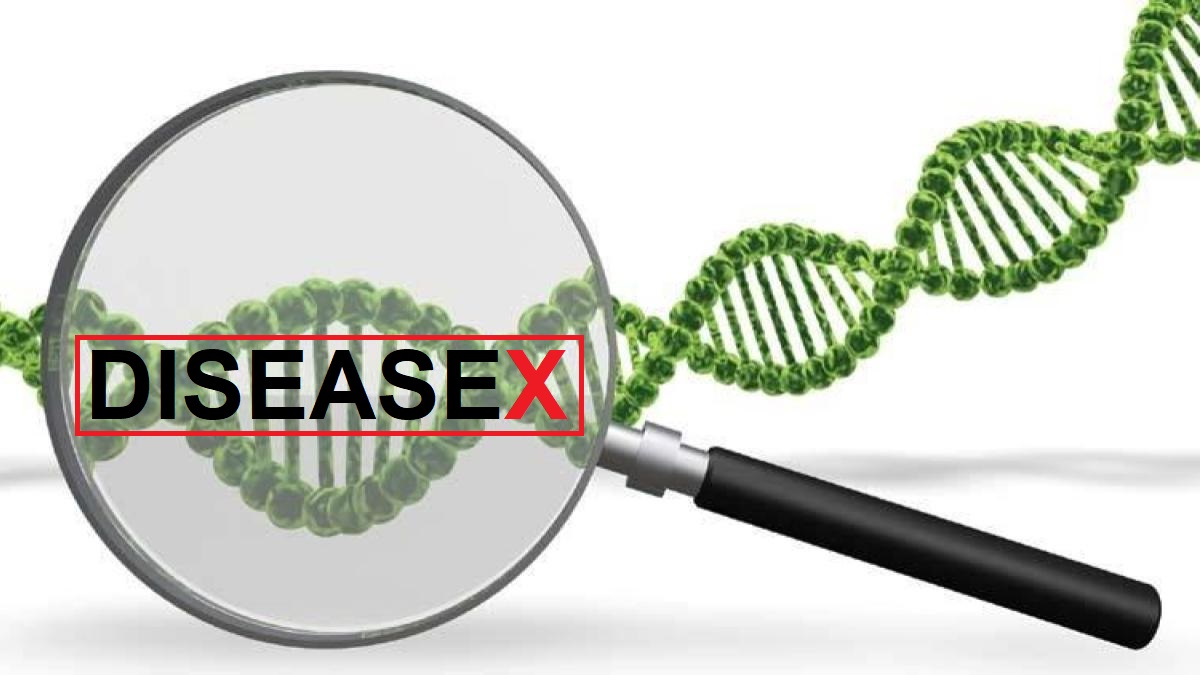
The World Health Organization (WHO) has a list of “priority diseases” that they consider significant. Among them is a particularly alarming entry called ‘Disease X’. While diseases like Ebola, SARS, and Zika are already on the list and known to us, ‘Disease X’ represents an unidentified pathogen that could potentially cause the next devastating pandemic.
This revelation comes at a time when the WHO has declared that Covid-19 is no longer a global emergency, symbolizing the end of a pandemic that claimed the lives of at least 7 million people worldwide.
However, WHO Director-General Tedros Adhanom Ghebreyesus has issued a serious warning, emphasizing the importance of global readiness for the next pandemic, which could prove to be even deadlier than Covid-19.
What is ‘Disease X’ ?
‘Disease X’ is a term introduced by the World Health Organization (WHO) in 2018 to describe an unknown and mysterious threat to human health. It represents a potential disease that has not yet been identified or understood by medical science. The concerning aspect is that ‘Disease X’ could manifest as a virus, bacterium, fungus, or any other unfamiliar pathogen, making it difficult to anticipate and combat its devastating effects. This uncertainty raises alarm because we may lack the necessary vaccines and treatments to effectively respond to such a disease. Given this unsettling prospect, there is an urgent need to intensify research and development efforts to prepare for and mitigate the potential impact of this unpredictable and potentially catastrophic future disease.
Public health experts speculate that the nature of the next ‘Disease X’ could be zoonotic, meaning it could originate in wild or domestic animals before crossing over to infect humans. This pattern has been observed in past outbreaks, including Ebola, HIV/AIDS, and COVID-19. The transmission of diseases from animals to humans is a known phenomenon, and it poses a significant risk for the emergence of new and potentially dangerous pathogens.
Additionally, there are concerns that the next pandemic could be caused by deliberate bioterrorism acts. This possibility adds another layer of complexity and uncertainty to the situation. The intentional release of harmful agents or engineered pathogens could have devastating consequences for global health security.
Given these factors, it is crucial for the scientific and medical communities, as well as policymakers, to remain vigilant and proactive in surveillance, prevention, and preparedness efforts to identify and mitigate the risks associated with ‘Disease X’ and potential future pandemics.
Furthermore, a disconcerting concept is the possibility of “zombie” viruses, which have been preserved in permafrost or other frozen environments for centuries, being released as a result of climate change. With rising temperatures, these ancient viruses that have long been dormant could thaw and potentially pose a significant threat to human populations.
The idea behind these “zombie” viruses is that they have been trapped in ice or frozen ground, preserving their infectious properties over an extended period. As the climate warms and previously frozen regions thaw, there is a concern that these viruses, which may have existed long before modern medical advancements, could resurface and cause infections in vulnerable populations.
While the likelihood and severity of such a scenario are still uncertain, the potential risks highlight the importance of monitoring environmental changes and studying the impact of climate change on infectious diseases. By understanding and preparing for these potential threats, we can enhance our ability to respond effectively and protect public health.
In light of these potential challenges, the World Health Organization (WHO) stresses the necessity for effective global mechanisms that can effectively address and respond to emergencies of all types. It is crucial for the world to be prepared to confront the next pandemic with decisive, collaborative, and fair actions. The lessons gleaned from the experience of Covid-19 act as a reminder of the significance of preparedness, robust healthcare systems, and international cooperation in mitigating the devastating consequences of future health crises.
As ‘Disease X’ remains a lurking uncertainty, it is of utmost importance for scientists, researchers, and policymakers to remain vigilant. Continuous monitoring and investigation of potential threats are essential. The world must unite in its efforts to strengthen pandemic preparedness, ensuring that the collective response is swift, comprehensive, and rooted in scientific knowledge. By prioritizing proactive measures, global cooperation, and evidence-based strategies, we can enhance our ability to effectively combat and manage future disease outbreaks.
For breaking news and live news updates, like us on Facebook fb.com/thevoiceofsikkim or follow us on Twitter twitter.com/thevoicesikkim and Instagram instagram.com/thevoiceofsikkim. Visit www.voiceofsikkim.com.






